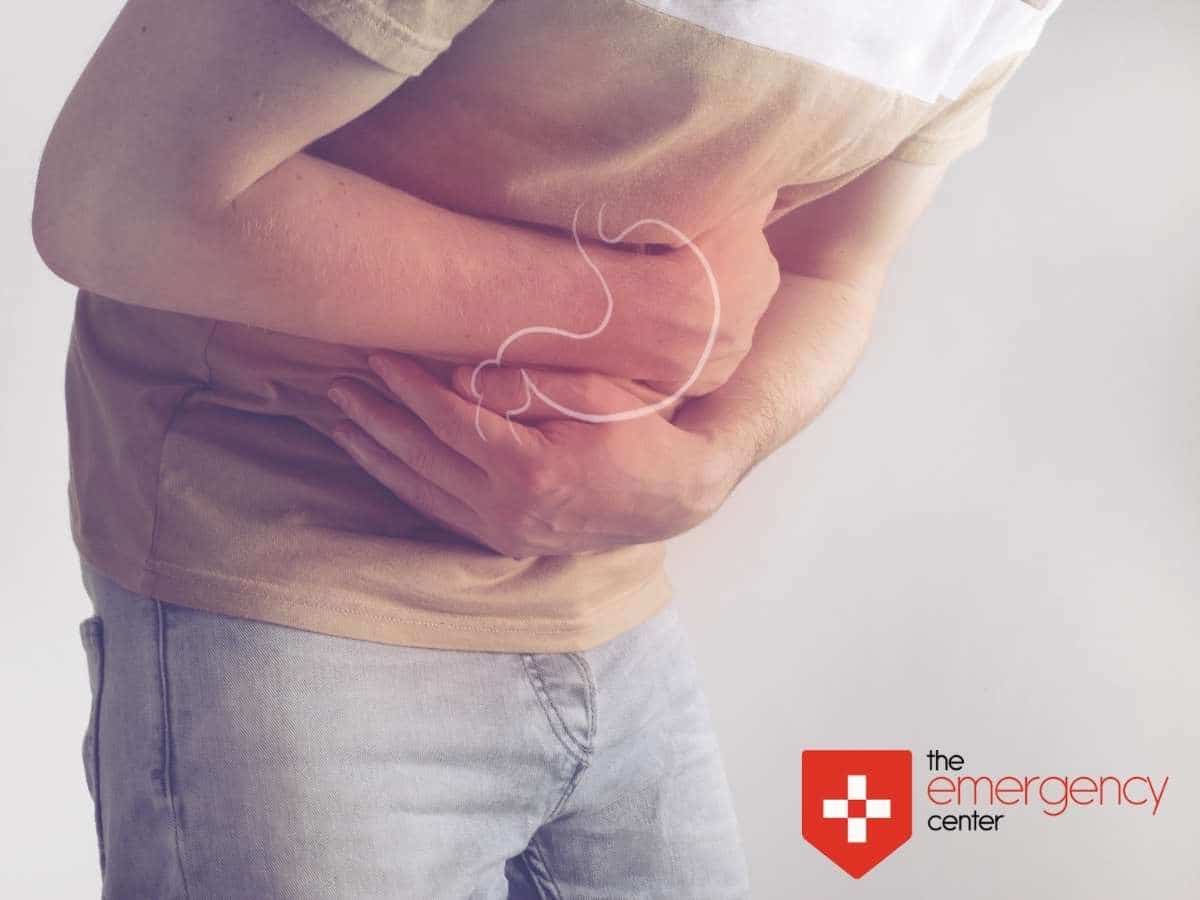Gastritis is a medical condition resulting from excess inflammation of the stomach lining. The stomach lining is protected by a layer of mucus that prevents stomach acid from tearing away at it. When this layer weakens, digestive fluids begin to damage to the stomach lining, causing gastritis.

In short, there is a mucous-lined barrier covering the stomach lining. When this layer of mucus becomes damaged, weakens, or becomes too thin, the digestive acids in the stomach begin to cause inflammation. The inflammation from these digestive fluids can lead to gastritis.
In some cases, those with gastritis may have no noticeable symptoms at all. However, other sufferers of gastritis may experience some discomforting symptoms. Common indicators of gastritis include stomach or abdomen pain that may either worsen or get better after eating, nausea, vomiting, and an enhanced feeling of fullness in the upper abdomen. Other symptoms can include:
Seek medical attention if symptoms of stomach irritation or indigestion last for a week or longer. A person should seek emergency medical attention immediately if there is blood in their vomit or stool, or if the stool is notably black and looks similar to ground coffee. Depending on the suspected cause of someone’s gastritis, doctors will prescribe the necessary medications to reverse the condition. Doctors will also suggest and prescribe acid-reducing medications such as Zantac or Pepcid. These medications help reduce the amount of stomach acid that irritates the stomach lining, thus reducing the intensity of the symptoms caused by gastritis.
While there is no surefire way to prevent gastritis from ever happening, there are ways to minimize the possibility of a gastritis occurrence.
If left untreated, gastritis can lead to many other complications. Certain gastritis conditions can lead to stomach bleeding and ulcers, while other extreme forms of gastritis can lead to stomach cancer. It is important to see a doctor immediately when experiencing symptoms of gastritis, especially when they are chronic.
Anyone with gastritis should see a doctor if symptoms are severe, extend past a week, or are unresponsive to adjusting diet or altering lifestyle.
However, any sign of internal bleeding is an immediate emergency and anyone with symptoms of internal bleeding should seek medical attention right away. Internal bleeding can cause dizziness, weakness, or feeling tired without an apparent cause. Feeling confused or passing out can also indicate blood loss. If there is bright red or maroon blood in the stool, a “tarry” appearance in the stool, or vomiting of blood, this is considered an emergency and may be life-threatening. Do not hesitate to come to The Emergency Center for treatment if any of these symptoms occur.
The Emergency Center is here for you in an emergency! Do not hesitate to come to The Emergency Center if you have symptoms of Gastritis or blood loss. The Emergency Center provides up to 23 hours of Observation and offers 24/7 care with NO WAITING. Visit The Emergency Center’s convenient 24-hour location.
The Emergency Center
San Antonio
11320 Alamo Ranch Pkwy
San Antonio, TX 78253
Phone: 210-485-3644
Conroe
4019 I-45 N,
Conroe, Texas 77304
Phone: 936-247-9457
Is your nausea more than just an upset stomach? Learn about the causes of nausea…
Experiencing numbness or tingling? Discover the causes and know when to seek emergency care for…
Experiencing abdominal pain? Learn what it could mean by location and when to visit the…
Is your skin redness a sign of something serious? Learn about different types of skin…
Why are ER wait times so long? An emergency room physician explains key delays and…
Are you aware of the dangers of carbon monoxide? Learn prevention tips, symptoms, and how…